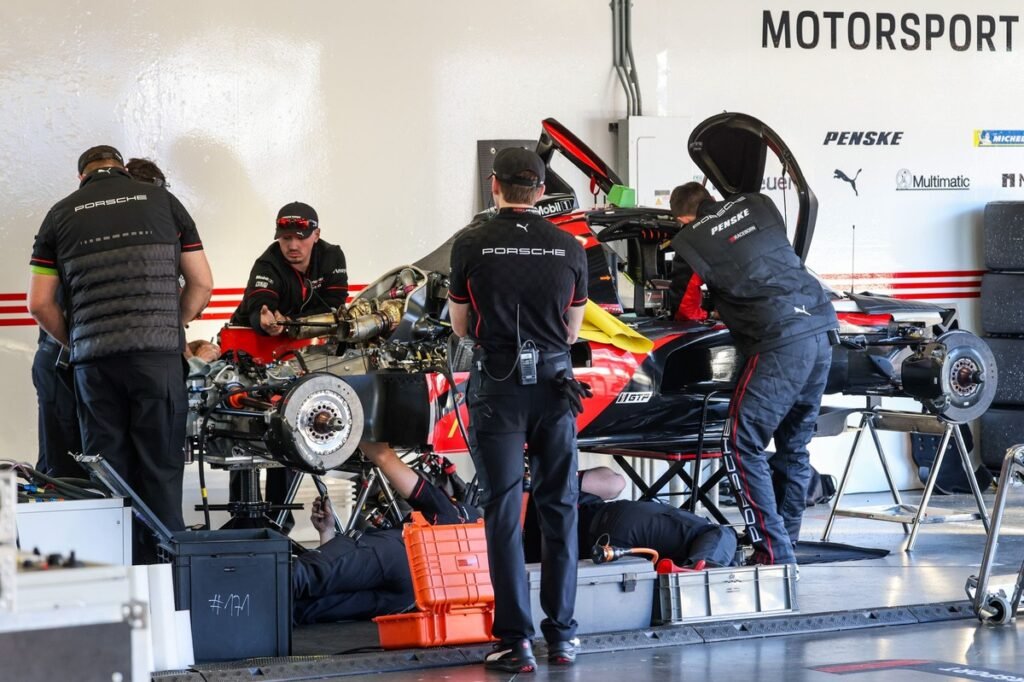Concerns Rise Over LMDh Reliability Ahead of Daytona 24 Hours
Daytona Beach, FL – Ahead of the highly anticipated Daytona 24 Hours, manufacturers Porsche and BMW have raised significant concerns regarding the reliability of the high-voltage components in the LMDh hybrid systems. Issues during the recent Roar test and initial practice sessions have necessitated multiple parts replacements, igniting apprehension within both teams.
BMW M Motorsport’s Andreas Roos highlighted the gravity of the situation, noting that the #25 Rahal M Hybrid V8 failed to set a qualifying time due to technical issues. "It’s not what you want to have in qualifying that the car stops on track,” Roos stated, emphasizing the need for consistent reliability during testing and practice.
Porsche’s Urs Kuratle expressed similar worries, revealing that the number of battery changes has been “definitely too many.” He remarked, “From the reliability point of view, it looks like we did a step backwards compared to last year.”
Porsche Penske Motorsport managing director Jonathan Diuguid confirmed that these issues have diminished confidence within the team. He indicated ongoing discussions with LMDh manufacturers, IMSA, and technical partners Bosch and Fortescue in an effort to resolve the problems.
Notably, the issues are varied and have not yet been traced to a specific fault or production batch. Diuguid mentioned that Porsche’s troubles are “not always the same problem,” and confirmed multiple occurrences of high-voltage failures, starting with the #7 Porsche 963 during the Roar last Friday. Similar issues were reported by other Porsche teams, including JDC-Miller MotorSports and Proton Competition.
While BMW has also reported problems with both of its Rahal-run vehicles, it remains unclear if competitors like Acura, Cadillac, and Lamborghini are experiencing similar high-voltage challenges. Kuratle urged caution against prematurely placing blame on battery components, asserting, “It is an HV issue,” and called for thorough investigation.
As teams prepare for the race, IMSA has been contacted for comment on the situation. The insights and rapid assessments of these reliability concerns are crucial as the 2024 GTP season commences, with teams eager to ensure that performance matches expectations on the world’s stage.


